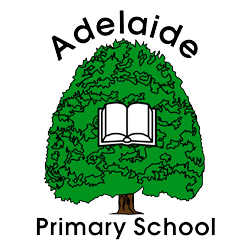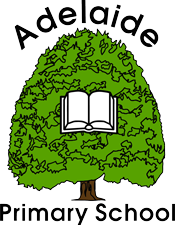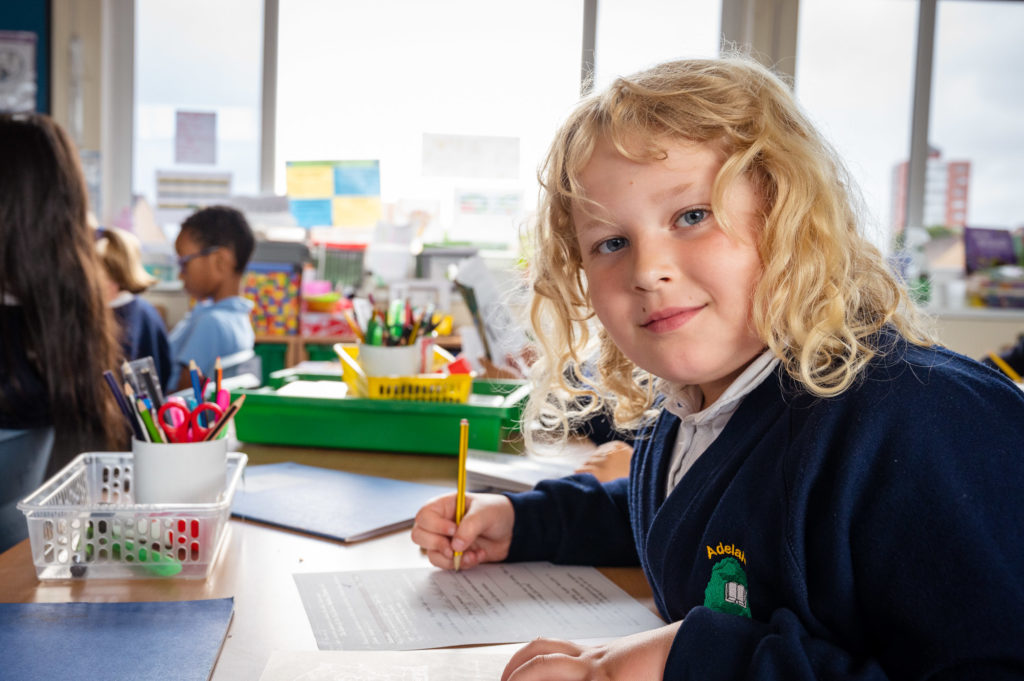Curriculum aims
“Our vision is to provide all of our children with a body of knowledge, skills and vocabulary alongside the development of an exceptional character so that they thrive and succeed in all that they do!”
Our children experience an inspirational learning journey that develops a genuine thirst for knowledge and curiosity of the possibilities that sit within the wider world around them.
Our children deserve the very best and the Adelaide Curriculum Experience gives them the opportunities, knowledge, skills and vocabulary alongside the personal attributes and attitudes to inspire them to be the best that they can be.
To achieve this,
we have built our curriculum around 3 key pillars:
Developing the very best learners:
“We are curious, collaborative and reflective learners with creative minds, we are resilient… we never give up!”
Developing the very best communities:
“We learn about respect, empathy and good communication so that we value ourselves and the world around us!”
Developing the very best knowledge:
“We take pride in building our knowledge, skills and vocabulary so that we learn more and remember more!”
Critical Competences
We want to ensure that our pupils receive not just the very best learning opportunities but also that they receive the most RELEVANT experience during their time with us.
We have carefully profiled the school community and have consulted with all stakeholders as to what we believe are the most critical attributes and competences that we can develop so that our pupils are prepared for a happy, healthy and successful future.
These critical competences form the ‘golden curriculum threads’ that we want our pupils and staff to explore time and time again!
We believe our children need to develop an understanding about where they live and the wider world.
Through learning about the world, we want them to understand their role in society and develop respect towards the environment, communities and religions.
It is important to us that all members of our school community are healthy – physically and mentally.
Throughout life, our children will face many difficult challenges and need to have the mental and physical strength to be successful and happy
We believe our children need to develop the skills to work well with other people.
Children need to know how to speak and listen with respect in a variety of different situations.
Our children need to become resilient to be able to deal with different challenges across the curriculum and in the wider world.
They need to develop the ability to solve problems without giving up. Developing the skills to work independently and become resourceful will be key to this.
Curriculum intent by subject:
Our Curriculum aims are taken from the National Curriculum. They are important to consider when we are planning how we are going to deliver the curriculum in order to ensure that the children are being taught the key skills that are critical to each subject area.
Children will develop the skills to:
- Produce creative work, exploring their ideas and recording their experiences
- Become proficient in a range of art, craft and design techniques
- Evaluate and analyse creative works
- Know about great artists, and understand the historical and cultural development of their art forms.
Children will develop the skills to:
- Develop scientific knowledge and conceptual understanding
- Develop understanding of the nature, processes and methods of science through different types of science enquiries that help them to answer scientific questions about the world around them
- Become equipped with the scientific knowledge required to understand the uses and implications of science, today and for the future.
Children will develop the skills to:
- Understand the history of Britain as a chronological narrative, from the earliest times to the present day: how people’s lives have shaped this nation and how Britain has influenced and been influenced by the wider world .
- Know and understand significant aspects of the history of the wider world:
- Understand historical concepts such as continuity and change, cause and consequence, similarity, difference and significance, and use them to make connections, draw contrasts, analyse trends, frame historically-valid questions and create their own structured accounts, including written narratives and analyses.
- Understand the methods of historical enquiry, including how evidence is used rigorously to make historical claims, and discern how and why contrasting arguments and interpretations of the past have been constructed.
- Gain historical perspective by placing their growing knowledge into different contexts, understanding the connections between local, regional, national and international history; between cultural, economic, military, political, religious and social history; and between short- and long-term timescales.
Children will develop the skills to:
- Become fluent in the fundamentals of mathematics, so that pupils develop conceptual understanding and the ability to recall and apply knowledge rapidly and accurately.
- Reason mathematically by following a line of enquiry, conjecturing relationships and generalisations, and developing an argument, justification or proof using mathematical language.
- Can solve problems by applying their mathematics to a variety of routine and non-routine problems with increasing sophistication, including breaking down problems into a series of simpler steps and persevering in seeking solutions
Children will develop the skills to:
- Develop contextual knowledge of the location of globally significant places;
- Understand the processes that give rise to key physical and human geographical features of the world, how these are interdependent and how they bring about spatial variation and change over time
Are competent in the geographical skills needed to:
- Collect, analyse and communicate with a range of data gathered through experiences of fieldwork
- Interpret a range of sources of geographical information, including maps, diagrams, globes, aerial photographs and Geographical Information Systems (GIS)
- Communicate geographical information in a variety of ways, including through maps, numerical and quantitative skills and writing at length.
Children will develop the skills to:
- Read easily, fluently and with good understanding and develop the habit of reading widely and often, for both pleasure and information.
- Write clearly, accurately and coherently, adapting their language and style in and for a range of contexts, purposes and audiences.
- Use discussion in order to learn; and elaborate and explain clearly their understanding and ideas both formally and informally.
Children will develop the skills to:
- Develop the creative, technical and practical expertise needed to perform everyday tasks confidently and to participate successfully in an increasingly technological world.
- Build and apply a repertoire of knowledge, understanding and skills in order to design and make high-quality prototypes and products for a wide range of users.
- Critique, evaluate and test their ideas and products and the work of others.
- Understand and apply the principles of nutrition and learn how to cook.
Children will develop the skills to:
- Understand and apply the fundamental principles and concepts of computer science, including abstraction, logic, algorithms and data representation.
- Analyse problems in computational terms, and have repeated practical experience of writing computer programs in order to solve such problems.
- Evaluate and apply information technology, including new or unfamiliar technologies, analytically to solve problems.
- Become responsible, competent, confident and creative users of information and communication technology.
Children will develop the skills to:
- Develop competence to excel in a broad range of physical activities
- Are physically active for sustained periods of time engaging in competitive sports and activities and lead healthy, active lives.



